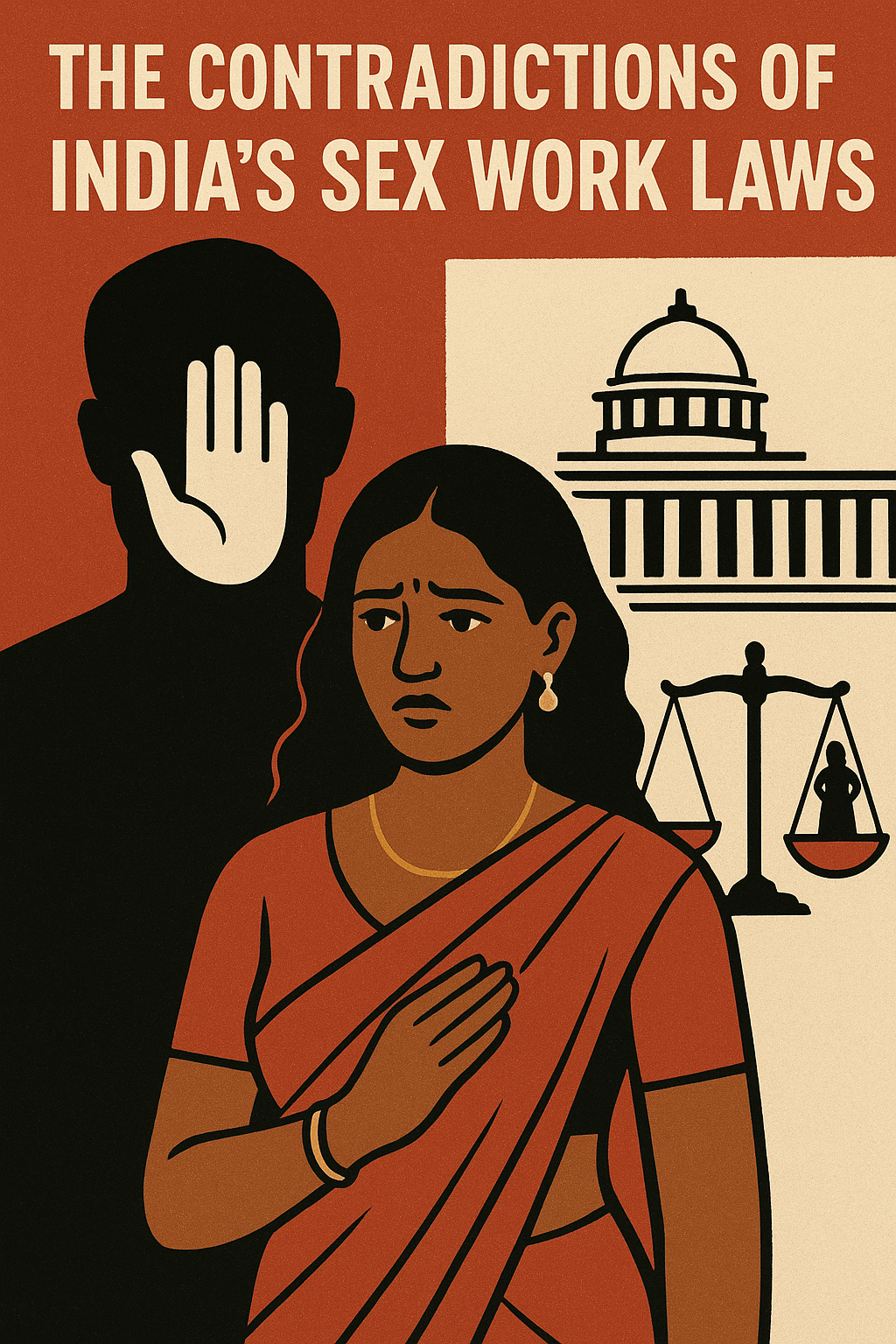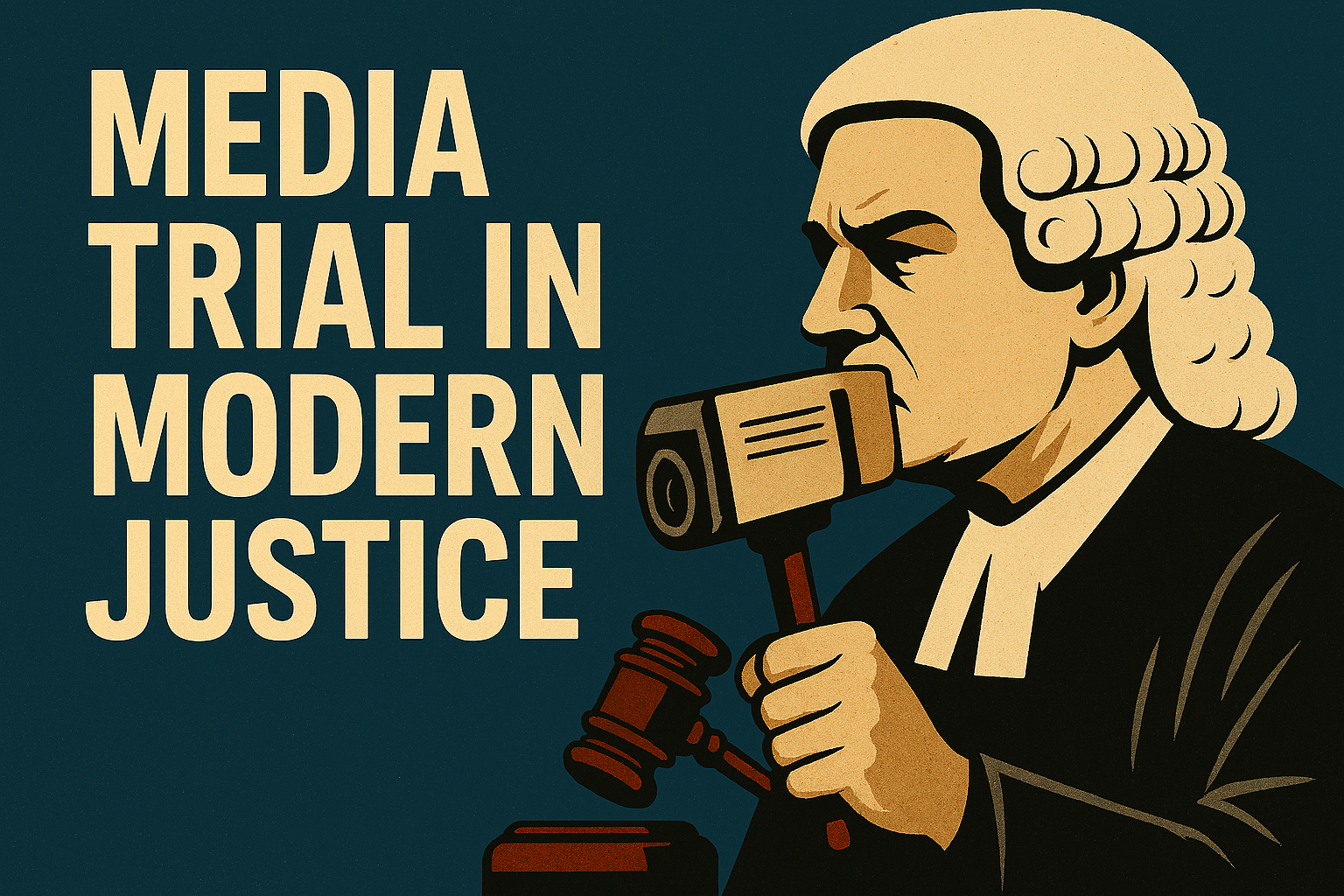



Author: Bhoomika BBALLB
University: Alliance University, Bangalore
Many Countries have Three Pillars of democracy but in India, we have Four Pillars of Democracy which are the Legislature, the Executive, the Judiciary and the Media. The Media, which is called Press may not be functioning in a way, it was intended to be. It has become more like a monkey-making channel today (Mondal, 2022). The Media acts as a Bridge between the Government and the Population at large.
Do you think a Democracy can survive without the Press? No. India exercises the basic right of freedom of speech and expression to every individual under Article 19(a)1. The Press right has been introduced from the US Constitution. It is the Voice of the People, where it can surpass the other Pillars if they are wrong. It gives the citizens all the necessary information needed to know regarding the Government Events. While Media plays an important role in democracy, has to make the balance which not only protects the accused right of fair trial and even avoids the pressure of public opinion.
What is Media Trail?
Whenever there is any sensitive case, which is yet to be tried in court, the curiosity of people to know more, there comes the media which then through the newspapers, television channels, websites start publishing their own interpretation if facts, which is generally called Investigative Journalism and is not prohibited in India. (India.com) This influence of media coverage to let people create their own point of view of making the accused innocent or guilty, before the judgement of court is called Media trial.
Rise Of Media Trials
Trail by Media has been a popular from the Late 20th century and 21st century, which describes the Television, the newspaper coverage on the individual’s reputation by creating a opinion of guilt or innocence before or after verdict of the court. Recently, they have been many cases where Media has involved them to limit where they had conducted trial and given verdict, even before the court has decided the judgement. The word Media has not been directly defined anywhere, but has given power under Article 19. Though Media trial undermines the principle of fair trial, under Article 21,2 which gives Right to Life and Personal Liberty. This can jeopardise the innocence, where an individual is considered and innocent until proven guilty and can lead to harming of an innocent’s reputation.
Air India Urination Case, 2023, Allegations were made against a Man for urinating on Air India. The Court Criticised the Media channels for being driven by Trp ratings, stressing that everyone has right to dignity.
1 Article 19, Constitution of India.
2 Article 21, Constitution of India.
Sushant Singh Rajput Case 2017, (Agrawal, 2024) Following the death of the actor, the Accused faced media scrutiny. The Court stated the Media Trials interfered with the investigation and administration of justice.
Historical Context.
Media Trial are not new in India, they have been from 1950, where Cases like Nanavati Case the media played a vital role in shaping the society’s opinion, then the social media making a constant feature in High Profile and sensitive Cases like Rape.
Legal Framework Governing Media Trials
▪ Press Council of India
▪ News Broadcasting Standard Authority
▪ Broadcasting Content Complains Council
▪ News Broadcasters Federation
IMPACT OF MEDIA TRIALS
Media trial can severely impact the judicial proceedings by creating a prejudgment of guilt in public’s mind which can influence judges and the juries. The biased coverage by Media can makes it difficult for the Accused to receive fair trial. In Anand v. Register, Delhi High court6 stated that the current Media Trial has no Legal standing and can create conflict with the fair trial.
Paid News and False News can also manipulate the individual’s perception and encourage violence and hatred among various communities in the society. The false presentation of truth in society by invading their privacy causes the breach of privacy under Article 21 of the Constitution. Cases where if the witness might want to withdraw to avoid the chaos in the
3 Contempt of Court Act, 1971
4 Bharatiya Nyaya Sanhita,2023.
5 Bharatiya Nagarik Suraksha Sanhita,2023.
6 Anand v. Register, Delhi High court.
public. The accused if is acquitted by the court might take years to prove it and rebuild their image in society.
Freedom of Press and Fair Trial
Trial by Media has created a problem because it involves the war between two principles- Free Press and Free Trial, where public are interested in it. The Supreme Court explained that the fair Trial obviously would mean a Trial before an Impartial Judge.
Freedom of Speech
Freedom of speech plays an important role in forming an opinion on social, political and economic matters. The media should be able to keep the public informed about the policies and government. In cases like Shreya Singh v. Union of India, emphasis that while freedom of speech is necessary but it should not cross the boundaries and interfere with the judicial proceedings.
Fair Trial
The right to a fair trial is a fundamental aspect of the Indian legal system and is enshrined in Article 21 of the Constitution, which guarantees the right to life and personal liberty.
Sahara India Real Estate Corporation Ltd. & Ors. v. SEBI & Anr., (2012) ,7 The Court discussed the issue of Media Trial and their impact on the Fair Trial in the court proceedings.
Balancing Freedom of Press and Fair Trial
We have rich tradition of fiercely Journalism, where the biggest scams in India were busted which helped the nation to be aware of such frauds. But it becomes clearer that Media has more negative influence than the positive influence. The media has to be regulated by courts.
The main issue arises when they have to exercise both Freedom of Press and Fair Trial. Media Trial can absolutely influence public opinion at large, by presenting biased information, which could then affect the judicial decision. (Nimisha Jha, 2015) That is why the Journalist and Reporters are responsible to provide verified Information to the Nation, while respecting the privacy rights of the individual and refrain them to cause any trouble though the judgment proceedings.
If you are aware, The Principle of “Innocent until Proven Guilty” is a fundamental aspect of the Criminal Justice System. The Media Trial can create the doubt of guilt before the court’s decision and which disrupts the principle and unfairness to the Trial. Media Trials can prejudice public opinion, The Contempt of courts Act, 1955,8empowers the judicial to take action for those who interfere with their decision making to administrating of justice. This Legal provision ensures the fair trial process against Media Trial.
7 Sahara India Real Estate Corporation Ltd. & Ors. v. SEBI & Anr., (2012) 10 SCC 603 8 Contempt of courts Act, 1955.
CONCLUSION
The Judiciary has been critical of the overactive and prejudicial reporting by the Media. In M.P. Lohia v. State of West Bengal, the court highlighted and cautioned the publisher, editor and journalist, which reported facts which was a sub judice, interfering with the administration. Media should engage in acts of journalism and not in as an agency to earn money through public views. It’s role to raise issues which is faced by public, to be the voice of the silent. Media is not to decide for the accused, there are courts to do that, to decide and give judgement. It must maintain its ethics and responsibility by not disrupting the court. The Judiciary and Media must co-exist without interfering with other’s functions. Media trials are the threat to the independence and fairness of the Judiciary. Media freedom is essential, where it balances between the both which respect the judicial process while eliminating the Trp sensation. Through this measures, can they be a balance of judiciary maintaining their integrity and negative impact of Media Trials in India.
REFERENCES
https://www.adda247.com/upsc-exam/media
trials/#:~:text=A%20media%20trial%20is%20when%20the%20news%20and,in%20the%20n ews%2C%20not%20the%20actual%20Court%20verdict.
https://www.writinglaw.com/what-is-media-trial/
https://blog.ipleaders.in/famous-cases-media-trials-india/
https://www.drishtiias.com/daily-updates/daily-news-analysis/trial-by-media https://thecreativepost.co.in/four-pillars-of-democracy/
https://www.jetir.org/papers/JETIR2204078.pdf
https://www.ijcrt.org/papers/IJCRT2105842.pdf